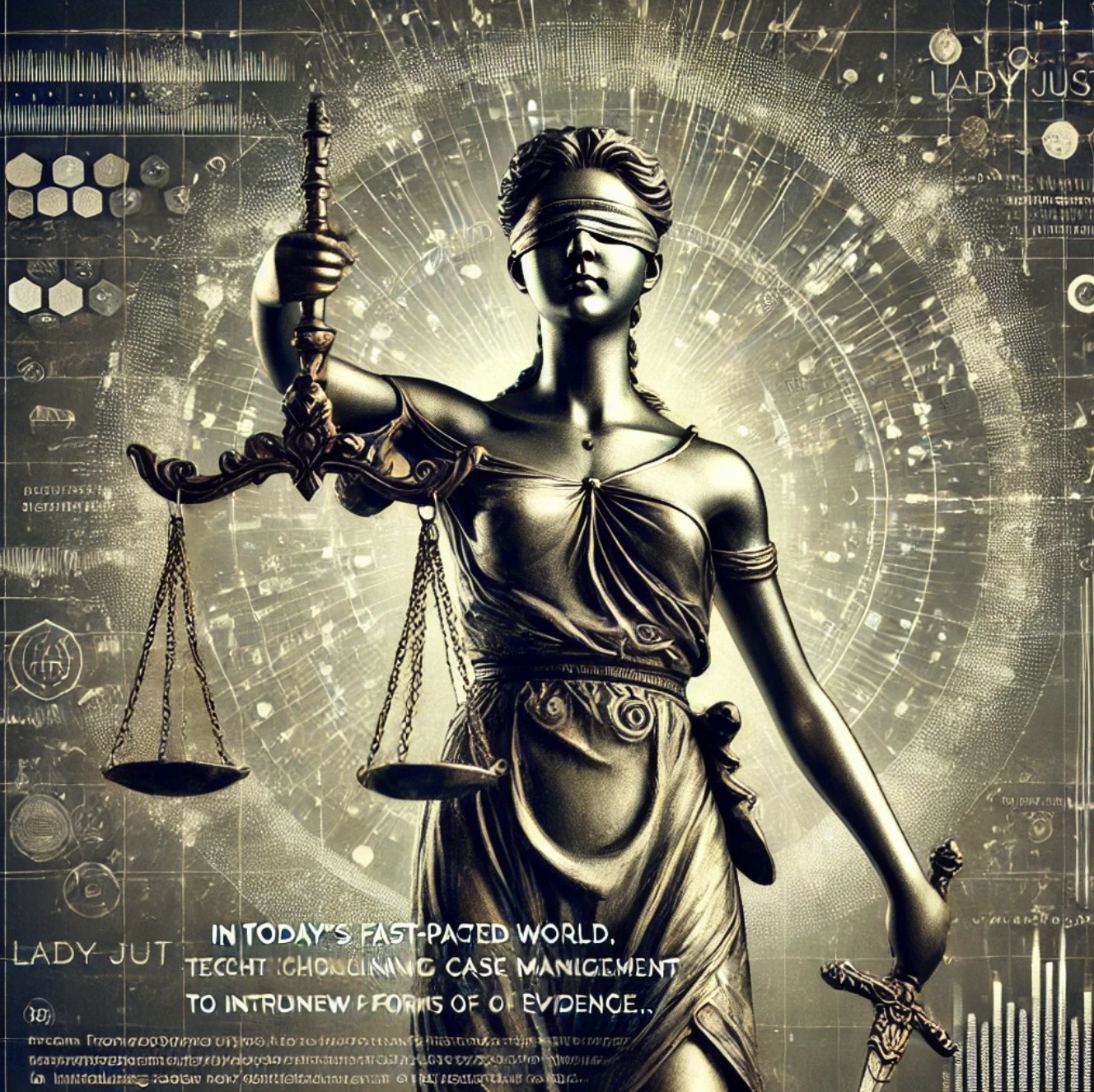
To gain insights into this transformation, we spoke with former Assistant State Attorney Joshua Padowitz, a forward-thinking criminal defense lawyer based in Broward County, Florida, who alongside his father law-partner (selected as one of “America’s Top 100 Criminal Defense Attorneys” and a true “legal legend” in his own right, Kenneth Padowitz), is at the forefront of integrating technology into legal practices.

In today’s fast-paced world, technology touches every facet of our lives, including the legal realm. From streamlining case management to introducing new forms of evidence in courtrooms, technological advancements are revolutionizing the way legal professionals approach their work. To gain insights into this transformation, we spoke with former assistant state attorney Joshua Padowitz, a forward-thinking criminal defense lawyer based in Broward County, Florida, who alongside his father law-partner (selected as one of “America’s Top 100 Criminal Defense Attorneys” and a true “legal legend” in his own right, Kenneth Padowitz), is at the forefront of integrating technology into legal practices
The Digital Shift: Embracing Technology in Legal Work
Legal work has traditionally been associated with mountains of paperwork, long hours of research, and manual processes that often slow down the justice system. However, the advent of legal technology—often referred to as “LegalTech”—is changing that narrative.
“Technology is not just a tool; it’s becoming a partner in the legal process,” says Joshua Padowitz. “From AI-driven legal research tools that help attorneys find relevant case law faster, to case management software that ensures nothing slips through the cracks, technology is making our work more efficient and accurate.”
Virtual Courtrooms: A Glimpse into the Future
The COVID-19 pandemic accelerated the adoption of virtual courtrooms, a trend that Josh Padowitz believes is here to stay. Virtual hearings and remote testimonies have become commonplace, offering a glimpse into the future of trials.
“Virtual courtrooms have democratized access to justice,” Padowitz explains. “Witnesses can testify from anywhere in the world, and clients can attend hearings without the burden of travel. This not only saves time and resources but also makes the legal process more accessible to everyone.”
The Rise of Digital Evidence
Another significant shift is the increasing use of digital evidence in trials. From social media posts to GPS data, digital footprints are becoming pivotal in building cases. According to Padowitz, this shift requires attorneys to be adept at navigating the digital world and understanding the nuances of digital evidence.
“Digital evidence is a double-edged sword,” Padowitz notes. “While it can provide compelling proof, it also requires careful handling to ensure its authenticity and relevance in court. Attorneys need to be as tech-savvy as they are legally astute to make the most of this powerful tool.”
AI in the Courtroom: Enhancing Decision-Making
Artificial intelligence (AI) is also making waves in the legal field. Predictive analytics, for instance, can help attorneys assess the potential outcomes of cases based on historical data. While AI isn’t replacing human judgment, it’s enhancing decision-making by providing valuable insights.
“AI is a game-changer, particularly in complex cases,” says Padowitz. “It helps lawyers predict case outcomes, identify trends, and even assist in jury selection. However, it’s crucial to remember that AI should complement, not replace, the human element of legal work. The work output from even the best available AI systems is C+ work product at best. In my opinion, unless people are seeking average results, qualified human lawyers are here to stay.”

Criminal Defense Trial Attorney Ken Padowitz and Joshua Padowitz
The Ethical Considerations
With the rapid adoption of technology in the legal field, ethical considerations are more important than ever. Issues such as data privacy, the potential for bias in AI algorithms, and the security of digital communications are at the forefront of discussions.
“Ethics must guide our use of technology,” Joshua Padowitz emphasizes. “As attorneys, we have a responsibility to protect our clients’ privacy and ensure that the technology we use adheres to the highest ethical standards. It’s a balance between embracing innovation and safeguarding fundamental legal principles.”
The Future of LegalTech
As technology continues to evolve, so too will its impact on the legal profession. Joshua Padowitz envisions a future where LegalTech not only streamlines processes but also enhances the overall experience of seeking justice.
“Technology will continue to push the boundaries of what’s possible in the legal field,” Padowitz predicts. “The key is to stay ahead of the curve, constantly learning and adapting to new tools and methods. Those who do will be better equipped to serve their clients and navigate the complexities of the modern legal landscape. For example, Virtual reality (VR) can be a powerful tool in jury trials involving self-defense situations because it allows jurors to experience the events from the perspective of the defendant. By immersing jurors in a three-dimensional recreation of the scene, VR can help them better understand the spatial dynamics, the proximity of threats, and the timing of actions taken in self-defense. This immersive experience can provide a more nuanced and accurate interpretation of the events, helping jurors to make informed decisions based on a deeper understanding of the context in which the self-defense actions occurred. Additionally, VR can eliminate the limitations of traditional two-dimensional evidence, making complex scenarios easier to visualize and comprehend. We are currently actually involved in a number of criminal defense cases that we intend on utilizing Forensic Animations and Virtual Reality to aid in our clients’ defenses at trial.”
Looking Forward
The integration of technology into legal work and trials is not just a trend; it’s a transformation that is reshaping the legal industry. With young, savvy legal experts like Joshua Padowitz leading the way, the future of law promises to be more efficient, accessible, and innovative. As the legal field continues to evolve, embracing these technological advancements will be crucial for any legal professional looking to stay relevant and effective in this digital age.







